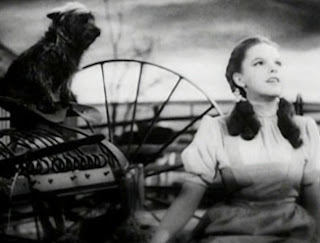Yesterday I finally finished editing the manuscript of The Bluebird of Happiness. When I completed the novel last August, I felt a sense of elation and euphoria, almost up there with the day my daughter was born. This joy was primarily due to my sense of accomplishment after decades of dreaming and writing--an accomplishment which, as I noted at the time, did not merely consist in the completion of my first novel, but also in what I viscerally felt to be the grandeur and the beauty and the profundity of the particular story that I had just told, far surpassing anything I had previously written and, indeed, far surpassing anything I thought I had been capable of writing.
I had quite a different emotional response yesterday when I once again reached the end of the text. Reading the completed work carefully and in its entirety for the first time since composing it, and after a gap of several months, I was able to approach, as closely as I ever could, the experience of a reader. Therefore, rather than experiencing the feelings of passion and inspiration that drove me to write it and the feelings of elation I had upon its successful completion, I was able simply to experience my emotional response to the story itself.
I was pleased to discover that the story still moved me every bit as much as when I wrote it. Upon reaching the end of the novel yesterday afternoon, in contrast to the euphoria I felt the first time, I felt heartache and melancholy for the remainder of the evening. I wanted to return my attention to preparations for my next novel and companion piece to Bluebird, "Rainbow", which has been fueled by its own passion and inspiration, but I just couldn't get in the mood. I was too depressed.
It remains to be seen how my revisiting Bluebird will affect the new novel, but I suspect that the tragedy of the first story, having been refreshed in my heart and mind, may serve as dark and fertile soil for the bright flowers of the second story. "Rainbow" is neither a sequel nor a prequel, but simply a related tale that focuses on Martin Lane, Thomas Fairchild's best male friend.
I stated before that Thomas Fairchild, Bluebird's protagonist, is an antihero. This is true, but he is still ultimately a sympathetic character, and in a sense that perhaps only fiction authors can understand, he is almost like my own dear son. I feel that I sent him off to a terrible fate, but I also went and experienced every bit of his suffering with him. And in so doing, like the gods to whom Thomas often refers, I made him, and myself, suffer in order to produce something beautiful and noble and rare... and to reveal Thomas, and his soul, as something beautiful and noble and rare. I did not intend for this to happen, and did not recognize the fact until long after I had told his tale, but I can see now that, in the nobility of his suffering, Thomas Fairchild becomes, no longer an antihero, but simply a hero.
I am proud of him, and proud to be his creator. Sometimes our characters teach us things even as we create them. Some people think writers write to impart knowledge they already have. But more often than not, writers write to discover knowledge, in a desperate search for some truth or goodness, some beauty or wisdom, that they sense must be out there. Their writing is frequently an attempt to make sense of their own lives, to save themselves from hopelessness, to find their way home from their lost wanderings in the wilderness of life. And sometimes, their characters--yes, their imaginary friends--can show them the way.


No comments:
Post a Comment